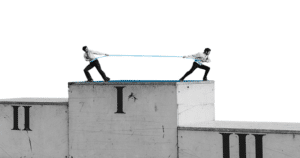Coaching Supervision is a process for helping coaches reflect on their practice so that they grow in competence and ensure client safety.
It draws on the world of counseling, where supervisors provide three important roles:
• Normative – the supervisor accepts (or more accurately shares with the supervisee) responsibility for ensuring that the supervisee’s work is professional and ethical, operating within whatever codes, laws and organisational norms apply
• Formative – the supervisor acts to provide feedback or direction that will enable the supervisee to develop the skills, theoretical knowledge, personal attributes and so on that will mean the supervisee becomes an increasingly competent practitioner
• Restorative – the supervisor is there to listen, support, confront the supervisee when the inevitable personal issues, doubts and insecurities arise
At a practical level, supervision gives an opportunity for a coach to bring their concerns about specific cases and their coaching in general to someone, who can help them review and reflect on what they are doing. It’s a lot more than simply being a coach’s coach – the supervisor brings a much wider portfolio of knowledge, insights and helping styles. In particular, they help the coach take a systemic perspective, exploring each of the cases brought for review through a number of lenses, including what is happening for the client, for the coach, in the client-coach relationship and in the broader context, in which the coaching assignment takes place.
Coaching supervision usually takes place one-on-one or in small groups, where everyone has an opportunity to discuss one case in turn.
Supervision is strongly recommended to support any level of coach or mentor, even at the level of basic skills coaching. The reasons for this are that:
• All coaches should be attuned to the continued development of their coaching skills
• All coaches meet situations, where guidance on different approaches would be useful in helping with a specific issue
• All coaches have a duty of care to those they coach. For example, a coach may not be aware that they are imposing their own agenda on the client – supervision raises their awareness of such situations.
Supervision has attracted an increasing amount of interest in the coaching profession in recent years. In the UK and Northern Europe, particularly, both professional bodies in coaching and large employers recognise the value of supervision in raising the quality of coaching (and hence how effective it is).
© David Clutterbuck, 2015





